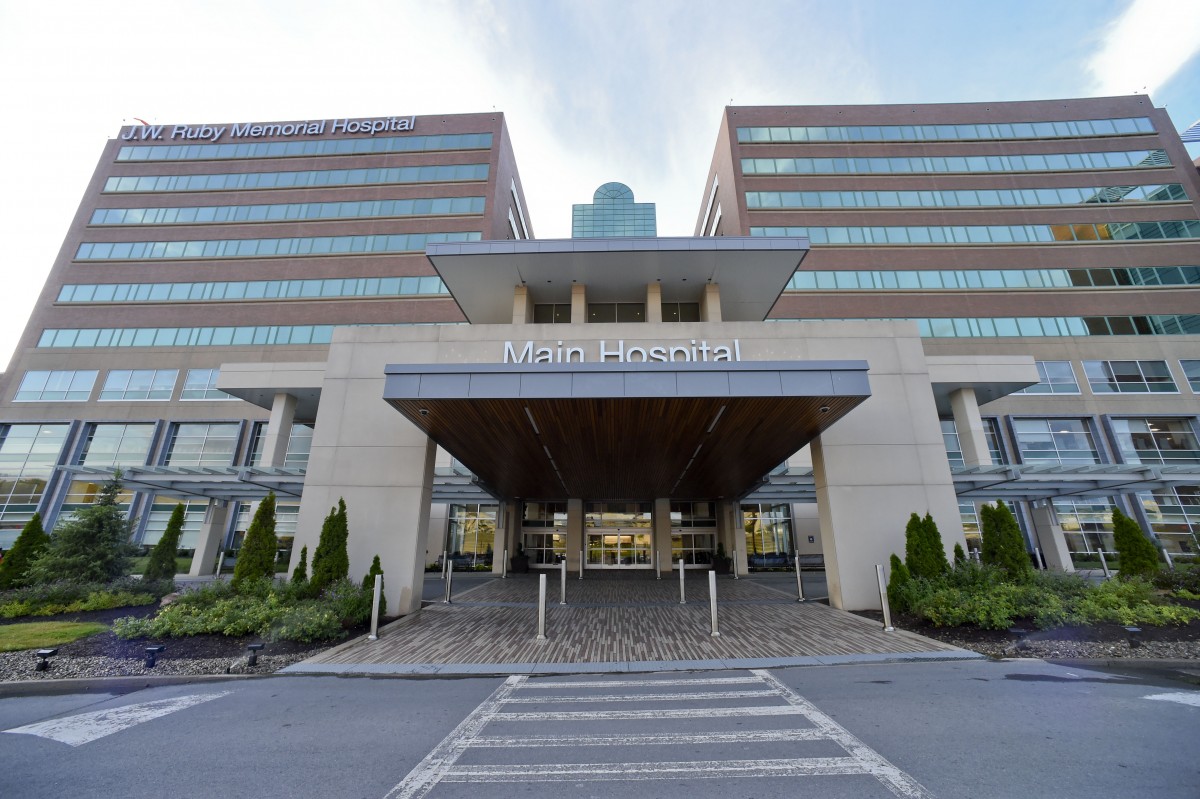MORGANTOWN — As COVID-19 numbers continue to climb nationwide, state COVID-19 Czar Clay marsh has regularly warned that surges will challenge the resources of the medical community – human and physical resources.
ICUs are filling with COVID patients in some states, he said, and some health systems are looking at rationing care.
With that in mind, The Dominion Pot spoke again with WVU Medicine officals about the status of Ruby Memorial Hospital and the WVUM system.
WUM provided some recent numbers. Dr. Ron Pellegrino, Ruby Memorial chief operating officer, and DR. Steven Hoffmann, Ruby’s vice president of Clinical Programs, provided some perspective.
“We have lot of plans but we haven’t really tapped into any of the severe surge plans at this point,” Hoffmann said. “We hope to never have to do that, but it’s possible.”
Hoffmann and Pellegrino said they’ve tiptoed up to the point of plans.
“It’s a delicate balance,” Pellegrino said. “With a full hospital, we want to make sure we deliver all care, as people have come to need, know and expect.”
Some numbers
Ruby was at 84% capacity on Tuesday, Pellegrino said, which is actually a bit low for a Tueday.
The numbers came from a Monday, 5:04 a.m., hospital status report. Two of 86 ICU beds were open; six of 218 adult step-down beds; and 10 of 195 adult acute care beds. On Tuesday, COVID cases occupied 19 of the 86 ICU beds, Pellegrino said.
Ruby typically runs full or close to full, and did so even before COVID, as the majority of hospitals in the state do, Pellegrino said. “COVID only added to that complexity. … Our ICUs are full much of the time.”
The numbers from any particular hour are a snapshot, he said. The patient population ebbs and flows day to day, even hour to hour. “Our staff are working really hard to make sure that folks are cared for.”
Pellegrino repeated what Marsh has often pointed out – that following a surge there will be a two- to four-week lag before COVID cases require hospitalization.
In such an event, he said, “It will get tighter and hairier. That’s why we have surge plans in place. We fill up all the space we have, then we have to start thinking of what services we have to suspend, or at least suspend temporarily, to make sure that we have room to care for sick patients.”
They know more know, he said, than in the spring when all elective procedures were put on hold across the state. “So I think we’re able to make better plans to open up space in the hospital if we need to.”
One resource is Fairmont Medical Center, whose primary purpose is to serve Marion County, but can also accept patients who are more stable and allow Ruby to open space. That’s also the case for the whole system. Over the past several weeks, WVUM has been trying to maintain patients locally or return them to there home areas from Ruby. WVUM wants to distribute cases across the region so that hospital space fills evenly without overwhelming any single institution.
They noted that one particular device, which few are familiar with, is in short supply. It’s an ECMO – extracorporeal membrane oxygenation – machine, which pumps oxygen into the blood and removes carbon dioxide. It’s useful for heart cases and, in the case of COVID, respiratory failure. Ruby has just seven and there are few across the region. “That’s a resource that we are short of, as is everybody.”
Surge plans are based on need, they said. First they would scale back on things that can be delayed safely. Some things that don’t require a stay – such as day surgeries – are lower on the list and wouldn’t immediately be affected. But there are steps planned if they need to pull staff to handle more difficult situations.
In view of concerns, Pellegrino said, “Our job is to deliver care to patents that need it. We’re going to continue to do just that.” But, “We really are relying on folks to do what they can to stay our of here.”
That means all the familiar precautions: masks, distancing, hand washing, avoiding big gatherings, exercising proper caution for holiday get-togethers.
People should understand hospital facilities aren’t an unlimited resource, Pellegrino said. But “I don’t think that the general public needs to worry that they’re not going to get care.”
Tweet David Beard@dbeardtdp Email dbeard@dominionpost.com




